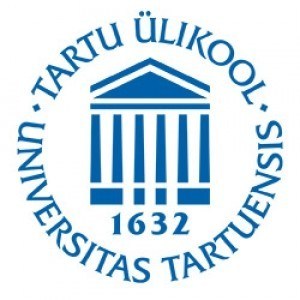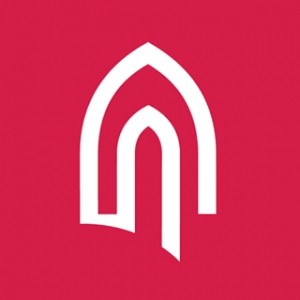Photos of university / #unitartu
Quantitative Economics at the University of Tartu is a comprehensive interdisciplinary master's program designed to equip students with advanced analytical and quantitative skills essential for understanding and addressing complex economic and social problems. The program combines rigorous training in economic theory, mathematical methods, statistics, and data analysis, preparing graduates for careers in research, policy-making, finance, consulting, and academia. Students will develop a solid foundation in microeconomics, macroeconomics, and econometrics, alongside programming skills and experience with various data analysis tools. The curriculum emphasizes practical applications, enabling students to work with real-world datasets, formulate economic models, and perform empirical research. Through a combination of coursework, projects, and internships, students gain hands-on experience and develop critical thinking abilities necessary to interpret economic phenomena numerically and analytically. The program also offers opportunities for specialization in areas such as financial economics, development economics, and data science, allowing students to tailor their education to specific career interests. Faculty members are experts in their fields, dedicated to providing high-quality instruction and research supervision. The University of Tartu’s vibrant academic environment and strong connections with industry partners provide students with a wide range of networking and professional development opportunities. Graduates of Quantitative Economics are well-prepared to contribute to solving urgent economic challenges and to pursue further academic research. The program fosters an international outlook, encouraging students from diverse backgrounds to collaborate and exchange ideas, ensuring a rich learning experience that prepares them for careers both in Estonia and globally.
The curriculum comprises the following modules:
Quantitative Methods in Economics (30 ECTS);
Economic Models (42 ECTS);
Elective module (12 ECTS): there is possibility to take elective module from this curriculum Special Topics in Economics or to take electicve module from the curriculum Financial and Actuarial Mathematics;
Optionals (6 ECTS);
Master's thesis (30 ECTS).
DOCUMENTS TO BE SUBMITTED:
- Online application;
- Motivation letter;
- Official copy of the Bachelors Diploma or its equivalent and Diploma Supplement (transcript/grade list) in the original language*
- Official, certified translation of the Bachelors Diploma and Diploma Supplement into English;
- Proof of English language proficiency (ut.ee/requirements, e.g. TOEFL iBT 75, IELTS 5.5, exceptions listed on web);
- Copy of the passport page stating the applicants personal details.
*All copies of education documents must bear an original seal and a signature of an authorized official of the issuing school or be certified with an apostille.
APPLICATION PROCESS:
- Submit the online application (relevant link available at a programmes website);
- Mail the required and carefully prepared documents by the deadline to: International Student Service, University of Tartu, Ülikooli 18, Tartu 50090, Estonia
APPLICATION DEADLINE: April 16
Applicants who graduate or have their diplomas issued later than the application deadline (in July, for example) must send an application form and their most recent official transcript of records by the required deadline.
Tuition fee is 3200 EUR/year and it covers tuition, essential study materials, supervision and advice for thesis preparation. Tuition-waiver scholarships are available for the best applicants. Students receiving this scholarship do not have to pay the tuition fee if they complete full-time study load (30 ECTS per semester). If it turns out that they do not complete full-time study load per semester, they have to pay tuition fee per missing credit point below the required 30 ECTS.
Quantitative Economics at the University of Tartu is a comprehensive degree program that combines economic theory with quantitative methods to prepare students for a range of careers in economics, finance, data analysis, and policy-making. The program is designed to develop a solid understanding of microeconomics, macroeconomics, and econometrics, alongside strong analytical and computational skills. Students are exposed to advanced mathematical techniques, statistical analysis, and programming languages essential for conducting empirical research and modeling economic phenomena. The curriculum emphasizes both theoretical foundations and practical applications, including data collection, statistical inference, and economic forecasting.
The program typically offers courses in mathematical economics, microeconomic and macroeconomic theory, econometric methods, and applied data analysis. Students also have opportunities to specialize in areas such as financial economics, public economics, or international economics, depending on their interests and career goals. Pedagogical approaches combine lectures, seminars, and practical computer lab sessions, fostering critical thinking and problem-solving abilities. Through these rigorous coursework components, students gain proficiency in software tools like R, Stata, and Python, which are crucial for economic modeling and data analysis.
The University of Tartu offers a vibrant academic environment with experienced faculty specializing in various fields of economics. The program promotes international mobility through Erasmus+ and other exchange programs, allowing students to study abroad and gain diverse perspectives. In addition, students may have access to research centers and internships that provide practical experience and networking opportunities within Estonia and abroad. Graduates of the program are equipped to pursue careers in economic research, government agencies, international organizations, financial institutions, or to continue their studies at the master's and doctoral levels.
Admission requirements typically include a strong background in mathematics and economics at the secondary education level. The program is primarily taught in English, attracting both local and international students. It adheres to the standards of quality assurance and continuously updates its curriculum to reflect current trends and developments in economic research and quantitative analysis. Overall, the Quantitative Economics program at the University of Tartu aims to produce highly skilled professionals capable of addressing complex economic challenges using rigorous analytical techniques and data-driven insights.

